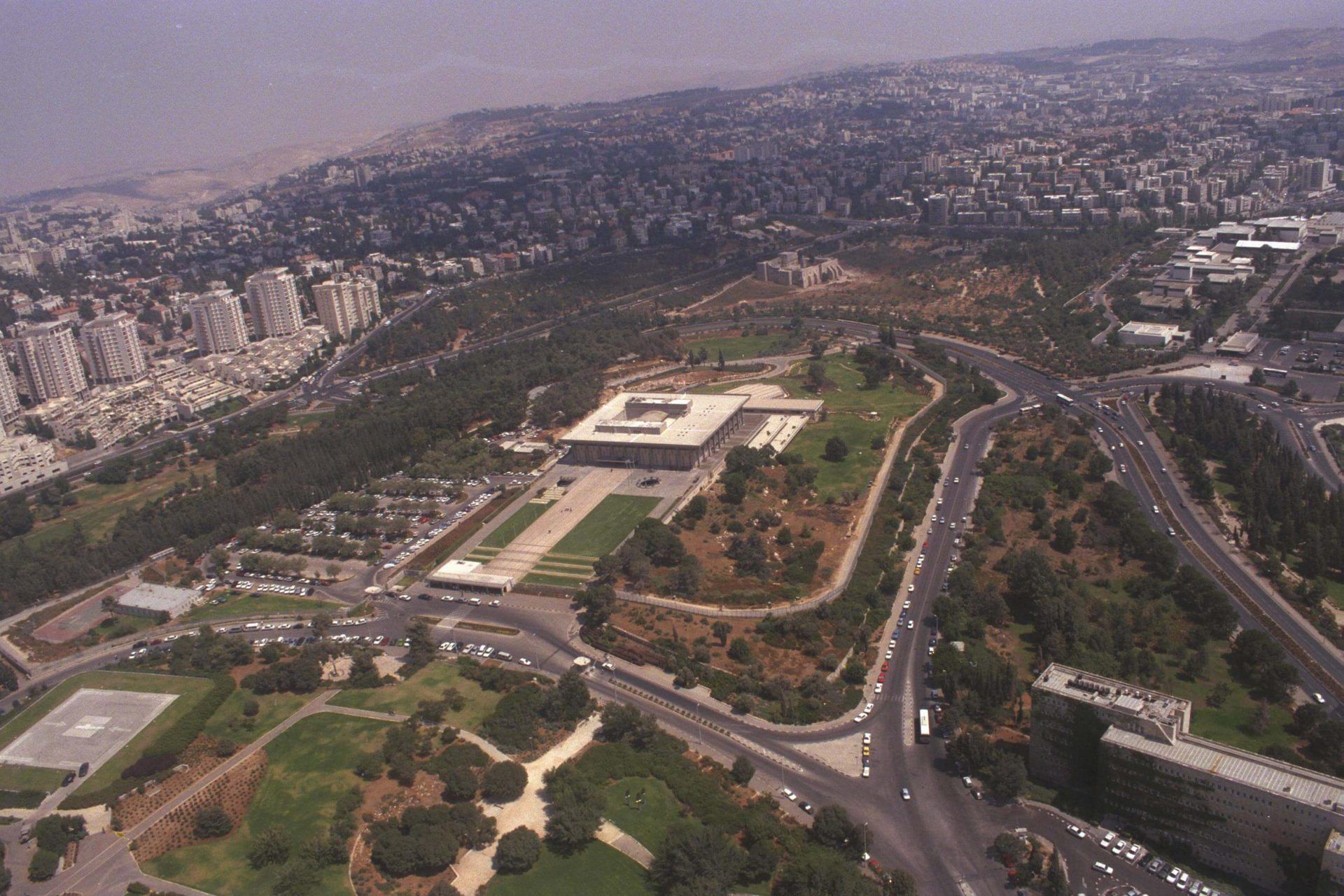In 2012, HonestReporting forced the The Guardian to apologize for unilaterally deciding that Israel’s capital city is not actually Jerusalem, but Tel Aviv.
This was no mere mistake: when approached to make a correction, The Guardian initially refused, and effectively took the position that Israel was wrong about the location of its own capital. The Guardian backed down and apologized only under threat of litigation.
Thanks to HonestReporting’s efforts, Ofcom, Britain’s press regulatory body at the time, changed its rules and The Guardian changed its entire “style guide,” which means the newspaper now has an overall policy of referring to Israel’s capital as “Jerusalem.”
Join the fight for Israel’s fair coverage in the news
Last week, the Czech Republic bowed to pressure from Palestinian groups, and announced its textbooks would teach schoolchildren this very same fallacy: that the capital of Israel is Tel Aviv.
The country later backed down, only after significant diplomatic pressure from Jerusalem Mayor, Nir Barkat.
I urged the Czech PM to stand on the side of truth: #Jerusalem is Israel's eternal capital https://t.co/yPJ06J9aC9 pic.twitter.com/V0LfSgWTIY
— Archive:Mayor Nir Barkat (@ArchiveNir) September 1, 2016
However, this double standard remains all too common: the United Nations, a variety of countries throughout Europe and Asia, and the entire Arab world have declared that Jerusalem is not Israel’s capital, even though they don’t decide capitals for any other country on Earth.
So, who actually gets to decide a nation’s capital?
Does the Czech Republic get to decide where the capital of Israel is located? Does The Guardian? And if so, why pick Tel Aviv? Why not Be’er Sheva or Eilat? Does Israel get any say at all in deciding its own capital? How does this work with other countries in the world?
First of all, what does the dictionary say?
Merriam Webster’s Dictionary defines “capital” as, “having the main offices of a government.” While, Black’s Law Dictionary, which serves as the standard reference for legal definitions, defines “capital” as “The most important city or town of a country or region, usually its seat of government and administrative center.”
There is absolutely no question that Jerusalem is the legislative center of the State of Israel. It is home to the highest offices of every branch of Israel’s government: the Knesset (Parliament), the Supreme Court, and the residences and offices of the Prime Minister and the President. In addition, the head offices of most Israeli government ministries are located in the Kiriat HaMemshala (Government Campus), also in Jerusalem.

What about foreign embassies?
Some nations and newspapers argue that Jerusalem could not possibly be Israel’s capital because the majority of international embassies are located elsewhere in the country. However, the location of embassies has nothing to do with defining a nation’s capital under both common and legal definitions.
For example, there are three countries (Comoros, Senegal, and Seychelles) whose U.S. embassies are located in New York and not in Washington DC, yet this does not make New York the capital of the United States. There are dozens of countries whose German embassies are in Munich and dozens more in Stuttgart, yet this does not mean that Berlin is no longer the capital of Germany.
What about international recognition?
Palestinians and Arab countries dispute the correct location of Israel’s borders. (In fact, most Arab countries deny that Israel exists at all). Yet this too, is entirely irrelevant to determining a nation’s capital.

In an exclusive statement to HonestReporting, Professor Eugene Kontorovich, international law expert from Northwestern University, explains:
Nothing in international law gives other countries a say in where a country’s capital is.
Kontorovich goes on to explain that a fundamental principle of international law is that anything not covered by international agreements is considered a domestic matter, to be decided by the laws of the individual country. In layman’s terms: if Israel determines that Jerusalem is the capital, then Jerusalem is the capital. This, according to the principles of international law.
Professor Kontorovich points out an additional problem with the foreign treatment of Jerusalem: Israel’s seat of government is located entirely within parts of Jerusalem that are not subject to controversy, therefore,
“…the position [of many newspapers and countries] is that ALL of Jerusalem is not really part of Israel.”
What about territorial disputes?
There are presently 124 countries involved in territorial disputes and dozens of countries that are not recognized at all by at least one other country in the world. Yet this does not impact determining a capital city.
For example, the city of Nicosia is partly located in a portion of Cyprus claimed by Turkey, yet it is nonetheless the capital of Cyprus. During the Cold War, Berlin was divided and for practical reasons most government functions were moved to Bonne. Yet Bonne was only a “de facto” capital, while Berlin remained the “de jure” capital of Germany.
These are just two examples among many. In fact, our research has not been able to uncover even one case where a nation’s capital was determined by anything other than that nation’s own decision.
Except for Israel.
Quite simply: Israel, and Israel’s capital, ought to be held to the same standards as every other country on Earth.
Knesset image: CC BY GPO via Flickr and Wikimedia Commons. Nicosia map image: Google Maps Eugene Kontorovich: Northwestern University School of Law.


